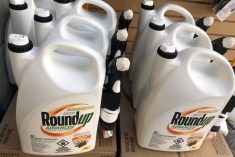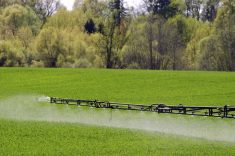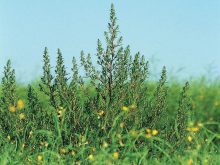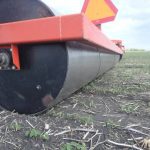Chicago | Reuters — A federal judge has temporarily blocked California’s plans to require cancer warnings on products containing glyphosate, in a win for manufacturer Monsanto.
U.S. District Judge William Shubb said the warnings would be misleading because glyphosate is not known to cause cancer, according to court documents filed on Monday in California. He still allowed the state to keep glyphosate on a list of cancer-causing products.
“Given the heavy weight of evidence in the record that glyphosate is not in fact known to cause cancer, the required warning is factually inaccurate and controversial,” Shubb wrote.
Read Also

Wheat breeding system no longer works, Canadian Wheat Research Coalition report says
A Canadian Wheat Research Coalition report, published Feb. 26, says the status quo is not an option for Canada’s wheat breeding system. It must be transformed, by farmers.
The judge’s decision is important for Monsanto because warnings could discourage use of glyphosate, which is widely used by farmers on genetically engineered crops and by consumers on lawns. The company’s agricultural productivity segment, which includes glyphosate, had net sales of US$3.7 billion in fiscal-year 2017.
Monsanto, which is being acquired by Bayer, and U.S. farm groups sued California in November to stop the warnings.
The state added glyphosate, the main ingredient in Monsanto’s herbicide Roundup, to its list of cancer-causing chemicals in July 2017 and had planned to require that products containing the chemical carry warnings by July 2018.
California’s Office of Environmental Health Hazard Assessment (OEHHA) said on Tuesday its actions were lawful and that it was pleased the judge denied Monsanto’s request for an injunction against including glyphosate on the list.
The state acted after the World Health Organization’s International Agency for Research on Cancer (IARC) concluded in 2015 that glyphosate was “probably carcinogenic.”
Other studies have found the opposite, including one released by the U.S. Environmental Protection Agency in December.
A large, long-term study on glyphosate use by U.S. agricultural workers, published in November as part of a project known as the Agricultural Health Study, or AHS, also found no firm link between exposure to glyphosate and cancer.
Reuters reported in June that an influential scientist was aware of new AHS research data while he was chairing a panel of experts reviewing evidence on glyphosate for IARC in 2015. He did not tell the panel about it.
“Glyphosate is a vital tool that growers have trusted to provide safe, affordable food,” said Chandler Goule, CEO for the National Association of Wheat Growers.
— Tom Polansek reports on agriculture and agribusiness for Reuters from Chicago.
















